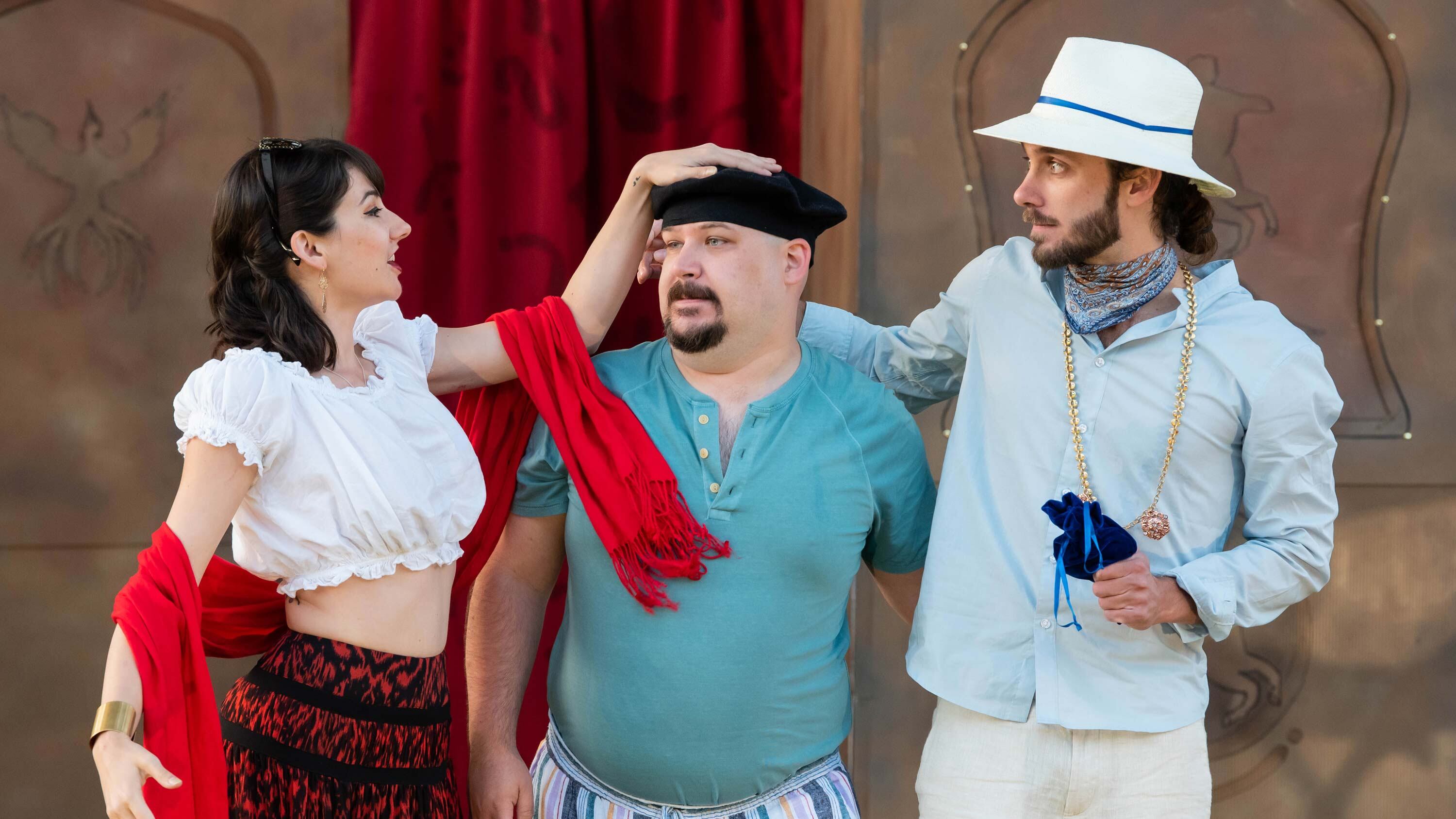Even the stodgiest productions of The Comedy of Errors should feel like a tale told by a drunkard—full of loud absurdity signifying all manner of complications fueling the madcap buffoonery. But Shakespeare's iconic farce, which is also one of his earliest plays, may suffer from its own success.
While contextual reimaginings or bravura performances can revivify many drama club staples, laughter does benefit from a certain element of surprise. That's why The Comedy of Errors has been creatively adapted time and time again. From the late-1930s Broadway musical The Boys From Syracuse to the Flying Karamazov Brothers' vaudeville-intensive '80s rendition to the turn-of-the-millennium hip-hopera The Bomb-itty of Errors, the travails of twins separated at birth have proven sufficiently malleable to weather all manner of interpretations. And now, Beaverton's Experience Theatre Project puts its inimitable stamp on the play.
On the heels of last winter's Masonic Lodge-set, audience-immersed staging of The Picture of Dorian Gray and 2017's steampunk-themed The Tempest, the inventive company is spending this summer touring area wineries with a modernized, aggressively engaging Comedy of Errors. WW spoke with director Brenda Hubbard about the challenges of presenting Shakespeare in unconventional venues.
WW: Have you been part of an open-air production before?
Brenda Hubbard: I don't think I've ever directed one. For the Ashland Shakespeare Festival, I performed many, many times on their outdoor stage, which at that time seated 1,200. I remember when the Goodyear Blimp flew overhead on opening night—things like that, you're competing a bit. I remember playing Hermione in a production of A Winter's Tale while a thunderstorm was brewing, and I stood frozen as a statue thinking I could be struck by lightning at any moment because I was highest on the stage.
Were you familiar with Experience Theatre Project before working on this play?
They approached me about directing a couple of years ago, but I didn't feel the other show would play very well in that environment. This time, the whole project seemed more amenable—the perfect choice for a winery. Even when the audience doesn't hear the language, they can still follow the story from movement and picturization. The broader comedies lend themselves to that. I know [ETP] does serious plays as well, but at Ashland, those worked in venues constructed for better hearing.
Are there challenges that come with using a winery as a stage?
There are unique difficulties performing outdoor shows, with Shakespeare especially since so much of his world is based on nuance and the ability to understand the language. You can't always hear those important subtleties. Babies cry. Dogs bark. An ambulance will drive by. Also, audience members won't all view the play in the same way at the same time. Staging comedy's always about making sure the audience receives the joke in a way that they can grasp. You don't want half of the people laughing five minutes before the rest can see, and coordinating audience response gets harder when people are spread out.
Are there advantages as well?
Oh, gosh, yeah. There's a trade-off between hearing and seeing. You know, Shakespeare performed out of doors in the public theaters some of the time. He also writes about the imagery of nature —the ocean, the trees, the wind—and when those things occur as actors talk about them, there's a kind of magic quality.
I like the idea of theater that takes advantage of its environment. There are times where the actors interact with audience members. During a chase scene, the actors run through them. That's a little scary, but there's also a freshness when it's not all planned. Since we don't know the ways the audience might stand up or move around, the staging involves a certain sense of improv, which I think the actors find really exciting once acclimated. There's something fun about not knowing what's going to happen. Even new theatergoers not particularly well-versed in the history of theater will pick up that things feel different. They're involved in a special kind of creation.
SEE IT: The Comedy of Errors is at various wineries every weekend through Sunday, Aug. 4. See experiencetheatreproject.org for a complete schedule. $10 suggested donation. $10-$160 for reserved seats and packages.

